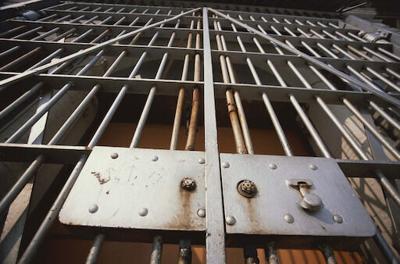The staunchest of youth advocates argue that none of our children should be tried as adults. Ever.
, is and is likely to be for the foreseeable future, that is not likely to be an idea that gains much political support anytime soon.
when a few bad boys and girls commit some horrible, high-profile crimes. Carjacking an elderly woman and causing her death is hard to get out of our consciousness, especially when so many have . It's hard to make that argument when a young teen is released on bond and tethered to an ankle monitor yet someone is killed.
Circumstances like those are few compared to the number of good boys and girls who never come in contact with law enforcement, and the small percentage of the total minor population who have been before a judge and spent time in a criminal justice-monitored facility, jail or prison. Last year, our state passed legislation requiring that 17-year-olds charged with felonies be tried as adults. That is a big difference for a child. The court process is different. Longer sentences are possible. Adult prison time is more likely. There are often fewer rehabilitation services.
After years working to find common-sense criminal justice reform, Louisiana's conservatives, moderates, liberals and libertarians came together in 2016 and significant reforms were implemented. Last year, our state legislature decided they've seen enough progress and started a dismantlement.
The Louisiana constitution has been updated a number of times since Louisiana became a state in 1812. Even before Landry became governor, there have been calls for another state constitutional convention to deal with what most believe is a bloated, 72,000-word document that is about 10 times longer than the U.S. Constitution. The governor took a shot at getting legislative support to hold a 2.5-week constitutional convention without success.
The existing Constitution of 1974 — which took about two years to write and ratify — was approved by voters in April 1974. When it became effective Jan. 1, 1975, the new constitution gave district attorneys statutory flexibility for youths 15 years old and older in cases of first- and second-degree murder, manslaughter, aggravated rape, armed robbery, aggravated burglary and aggravated kidnapping.
It wasn't until 1994 that the constitution was changed to give district attorneys additional flexibility when considering the prosecution of minors as adults. Those changes allowed such prosecutions also for first- and second-degree murder, forcible rape, simple rape, second-degree kidnapping, second or subsequent aggravated battery, second or subsequent burglary, of an inhabited dwelling and second or subsequent felony-grade drug violation involving manufacturer distribution or possession with intent to distribute of controlled dangerous substances.
If approved, Amendment 3 would remove these 16 specific crimes from the constitution, allowing legislators to write laws to determine which crimes warrant children being prosecuted as adults. The 16 would remain in state law, but as long there's a two-thirds majority, legislators could greatly expand that list to include who knows what. Exactly what, we don't know. Amendment 3 supporters didn't, can't — or won't — answer the question.
One real possibility: More teens could become felons — and that label is tough to shake.
We elect state representatives and state senators to represent us, but our children's futures are too important to allow emotional, knee-jerk reactions to determine how children should be handled when accused of doing wrong. Only 10% of registered voters on the December ballot.
View this post on Instagram
Groups including the Louisiana Center for Children's Rights, Vote of the Experienced (VOTE) and others urge voters to click "No" on the proposed amendment during an early voting period that ends on March 22 and on March 29, election day. For those who think this is a bunch of liberal progressives opposing the amendment, consider the Leaders for a Better Louisiana, a statewide, best-for-business group focused on forward-thinking reform. The group's analysis says the 16 specific circumstances "were placed in the constitution as a protection for children, but also to allow citizens to decide to what extent they believe young people should face the same punishment as adults."
"We believe that makes sense," the analysis continues. "Some have argued that there are more crimes that young people are committing that need to be added to the list. That may be. But choosing to treat a child as an adult is a serious decision that the writers of our constitution did not want to take lightly. We think that ultimate decision should remain in the hands of the people, not just the Legislature."
We all should agree.























